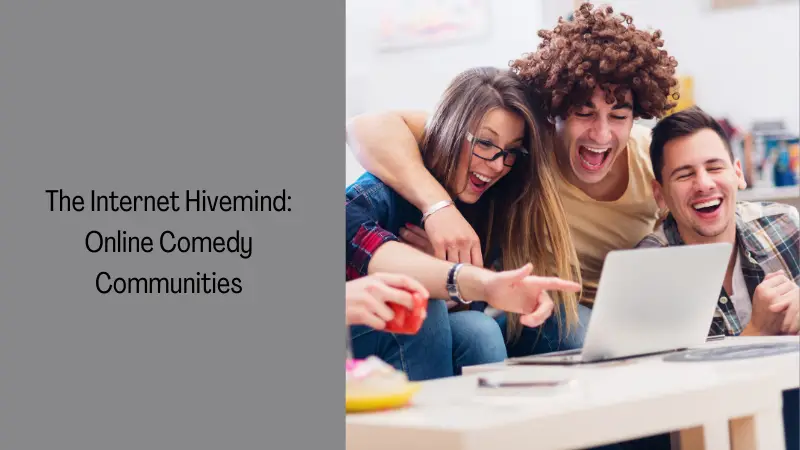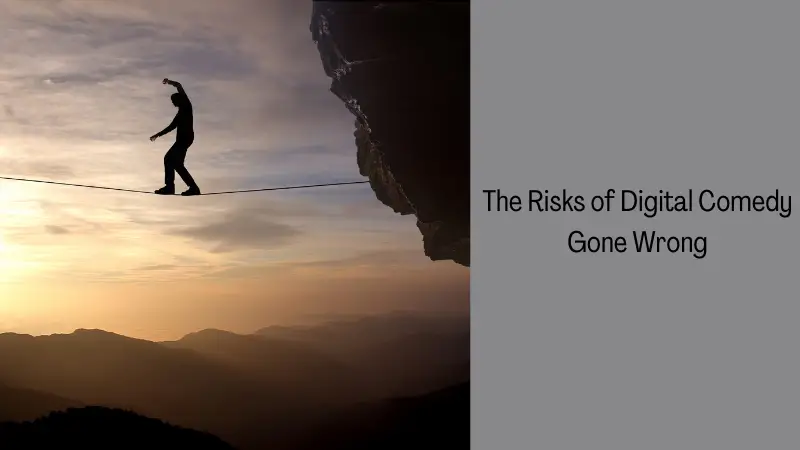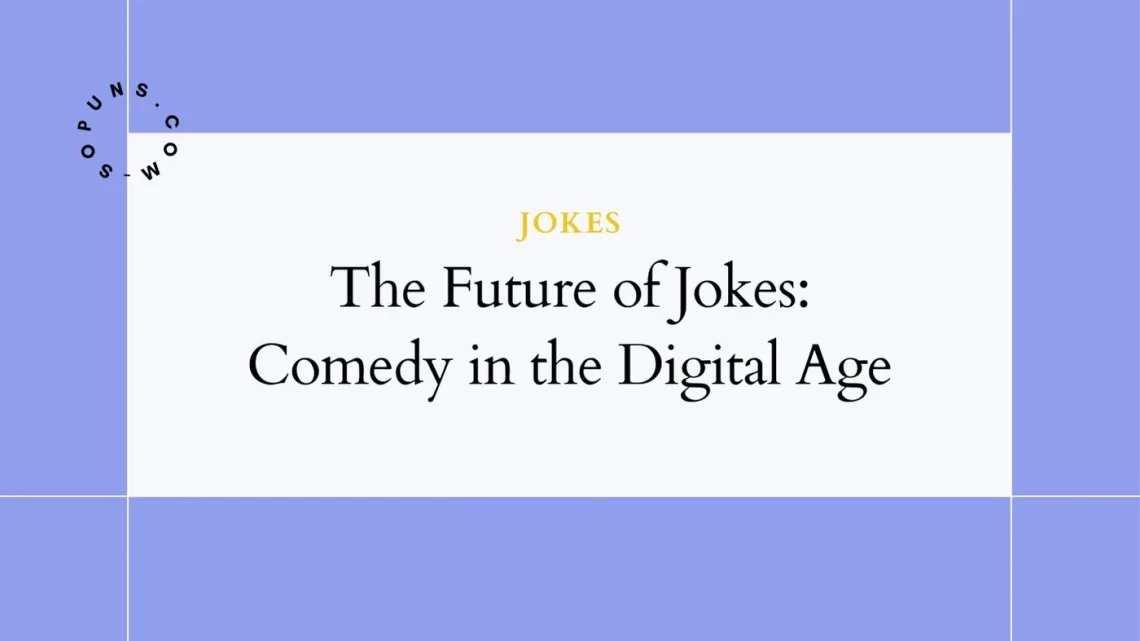Laughter connects us all. Since the dawn of humanity, humor has been a core part of the human experience. As technology evolves, so does comedy. In the digital era, memes and viral jokes spread at lightning speed, shaping humor trends and transforming how we create and consume comedy. This article explores the past, present, and future of humor in the Internet age.
The Digital Revolution Transforms Comedy
The digital revolution has dramatically changed humor and comedy. Pre-internet, jokes spread slowly by word of mouth, comedy albums, or late-night TV. Today, a hilarious meme can reach millions in minutes. Social media gives anyone a potential global audience. Whereas comedy once meant polished standup routines and sitcom scripts, now amateurs can find fame with DIY videos or TikTok skits.
As people spend more time online, digital comedy increasingly shapes pop culture. YouTube stars like Jenna Marbles and Smosh built massive fan bases with vlogs and sketches. Memes like Distracted Boyfriend or Expanding Brain reach near-universal recognition. Online humor communities like Reddit’s r/funny boast millions of members swapping jokes.
The internet’s endless stream of content accelerates comedy cycles. Catchy bits go viral, get remixed into infinite variations, and then fade as people chase the next laugh. Remember planking? The digital age makes comedy disposable.
The Meme Economy: How Shareable Humor Spreads
Memes are the currency of online humor. A meme can be an image, video, or joke format that gets copied and remixed across the internet. Memes spread through “shareability” – their ability to provoke strong reactions and get people engaged. The most viral memes tend to be relatable, funny, and easy to replicate.
Success comes down to sticking to the landing. A great meme needs the right combination of familiarity and novelty. For example, Distracted Boyfriend blew up by putting a silly new spin on a stock photo. Memes spread best when they capture a shared human experience, even if exaggerated.
Once a meme gains traction, it evolves rapidly as people put their own spin on it. Successful memes spawn thousands of iterations in a Darwinian battle for likes and shares. Only the funniest and most adaptable variants survive. For comedy fans, remixing memes becomes both an entertainment and a creative outlet.
The Internet Hivemind: Online Comedy Communities
The internet has allowed humor fans to find each other and swap jokes like never before. Online communities form around comedy genres, memes, or fandoms. For instance, the r/dankmemes subreddit shares edgy and ironic memes, while Tumblr amasses fandom in-jokes. Even individual memes birth their own subreddits.

These communities crowdsource comedy, with users riffing on themes. Running gags and in-jokes emerge organically from exchanges between strangers. While real-world social norms still apply, the anonymity of online forums allows edgier humor to flourish. The hivemind dynamic filters the funniest content to the top.
However, as these communities grow large, it gets harder to maintain quality control. Humor also gets watered down for mass consumption, losing its edge. Many formerly quirky communities like r/funny now feel generic, overrun by reposts. The joy comes from those early days when personalized humor flowed freely.
Comedy 3.0: Emerging Platforms and Creators
While YouTube, Twitter, and Reddit dominate online humor, new platforms keep emerging. Recently TikTok exploded as a video-sharing app tailor-made for comedy skits, with its short-form video and viral algorithms. Facebook is now a boomer humor zone, but newer apps like BeReal capture funny slice-of-life moments.
These new platforms create opportunities for novel comedy styles. On Twitch, streamers improvise humor alongside gaming. Instagram story filters generate surreal memes. The shifting digital landscape rewards creativity.
A new generation of talent thrives in this environment. Top creators combine digital savvy with comedic skills, like CalebCity’s viral YouTube skits about video game frustration. Some have broken into mainstream media, like Bo Burnham’s transition from YouTube songs to acclaimed comedy specials. The internet democratizes humor, letting anyone with passion find an audience.
Crafting Comedy in the Digital Age
While internet culture can feel intimidating, anyone can participate in online humor. Start by finding communities that share your comedic tastes. Observe what content resonates before sharing your attempts. Mastering meme formats like “name a thing… I’ll go first” takes practice. Study viral tweets to identify punchline patterns.
Don’t worry about gaining followers right away. Comedy works best when organic rather than forced. Try remixing existing jokes before creating your own. Making meme edits or parody accounts allows low-pressure experimentation. Use humor to connect over shared experiences, not push agendas.
Patience and persistence pay off in the long run. Consistently creating comedy that tickles the internet’s hivemind may gradually win you a loyal audience. By learning the unwritten rules of online humor, you can make your mark.
The Risks of Digital Comedy Gone Wrong
However, crafting digital humor carries risks. The anonymity of online spaces can enable harassment like doxxing or cyberbullying under the guise of jokes. Controversial memes may spread biased portrayals of marginalized groups. Virality incentivizes extremism and shock value without concern for consequences.

Humor that punches down can have lasting impacts on mental health and real-world discrimination. Jokes relying on stereotypes quickly grow dated as cultural sensitivity increases. While the digital landscape changes rapidly, harmful content lives on through archives and screenshots.
Creating inclusive online humor requires empathy, ethics, and social awareness — understanding both changing cultural standards and the pain words can inflict. At its best, comedy brings joy and connection. But this requires ensuring the butt of the joke is not a marginalized group. A good litmus test is whether the humor empowers or denigrates.
Can Digital Comedy Achieve Timelessness?
As humor evolves at warp speed online, does it lose staying power? Can digital comedy gain lasting significance, or is it fated to become dated and irrelevant?
Some viral memes do transcend the moment, their resonance forever linked to a cultural zeitgeist. For instance, Distracted Boyfriend symbolized commitment fears in the Tinder age. Disaster Girl embodied mischievous schadenfreude. At their best, memes crystallize universal emotions for generations to come.
Master meme creators also emerge as icons who remain relevant by evolving with the times. Twitter humorists like Dril embody the chaotic absurdity of online life in ways that won’t get old. Comedians like Bo Burnham will shape humor for digital natives. Great comedy reflects the human experience — which at its core remains constant, even as technologies change.
While individual memes fade, digital culture promises endless innovation in humor. As technological shifts unlock new creative possibilities, there will always be funny minds ready to seize the moment. The future of comedy in the digital era blazes bright. Laughter will never go extinct.
Frequently Asked Questions
How has social media impacted comedy?
Social media radically accelerated the spread of humor, with memes now shaping pop culture within days. It gave amateurs viral reach but also created echo chambers. Overall it democratized comedy by letting anyone find an audience.
What makes a meme go viral?
Viral memes tend to be relatable, remixable, and evoke strong reactions. Success comes from putting a novel spin on familiar formats. Memes spread through shareability – their adaptability and potential for creative mutations.
Are online comedy communities dying out?
As communities grow huge, they can lose quality control and personalized humor. But new creative platforms constantly emerge, birthing vibrant micro-communities of comedy fans. Niche humor now thrives in online spaces.
How can I create my own successful online comedy?
Start by learning memes and joke formats organically before sharing your own attempts. Persistently create relatable humor tied to shared experiences. Build a niche audience before chasing virality. Master digital sensibilities.
Does internet humor have lasting significance?
While individual memes fade, some do crystallize cultural moments timelessly. Great comedy reflects enduring human truths. As technology evolves, digital innovation will keep birthing new icons and creative possibilities for humor.
Conclusion
Technology is transforming comedy, but laughter remains universal. Memes spread joy at light speed, niche communities swap personalized jokes, and digital platforms incubate new talent. With empathy and creativity, anyone can shape online humor. While risky if misused, at its best digital comedy connects us through wit and catharsis. Laughter will never go extinct – it will just keep reinventing itself.






No Comments